What is an ovarian cyst?
An ovarian cyst is a sac filled with fluid (or semisolid material) that forms on or within one or both ovaries. Most ovarian cysts are benign (noncancerous) and symptomless, often discovered during routine pelvic exams or imaging tests. While usually harmless, regular pelvic exams and discussing any symptoms with your provider can help manage potential complications.
What are the different types of ovarian cysts?
Ovarian cysts include functional cysts, associated with your menstrual cycle, and other, less common cysts associated with various health conditions.
-
Functional cysts
Functional cysts, which develop during your menstrual cycle, are the most common ovarian cysts, including follicle cysts or corpus luteum cysts. Functional cysts form when your ovaries release an egg.
- Follicle cysts: Follicle, or follicular, cysts form during ovulation. Your ovaries release eggs in sacs called follicles, which grow until they break open and release an egg. If a follicle doesn’t rupture, it grows and becomes a cyst. Most of the time, you won’t have symptoms if you have a follicle cyst, but they can cause pain. Follicle cysts go away on their own within a few months.
- Corpus luteum cysts: Corpus luteum cysts form after ovulation. When a follicle releases an egg, it collapses into cells called corpus luteum, which produce hormones and help your body prepare for the next ovulation cycle. If the follicle does not collapse, it may seal itself up, causing fluid to accumulate inside and forming a corpus luteum cyst.
Corpus luteum cysts can generally go away within a few weeks and do not cause symptoms. However, some can bleed or cause pain. In rare cases, these cysts can grow very large and twist the ovary, which can cut off blood supply to the ovary. This condition, known as ovarian torsion, causes extreme pain and requires medical treatment.
-
Other cysts
Less common types of ovarian cysts can form for other reasons, including health conditions like endometriosis.
- Cystadenoma: Cystadenomas are benign tumors that form on the outside of an ovary. They can become quite large, and when they do, they can cause pelvic pain, discomfort and bloating.
- Dermoid cysts: Dermoid cysts, specifically mature teratomas, are tumors that can contain different types of tissue, such as hair or skin. While these cysts are present at birth, they are often only discovered during the reproductive years. Mature teratomas are benign (noncancerous), whereas immature teratomas, which are less common, carry a higher risk of cancer.
- Endometrioma: Endometriomas are cysts caused by endometriosis. They occur when endometrial tissue grows on an ovary and are sometimes filled with a dark-brown fluid. Endometriomas are sometimes called chocolate cysts.
Ovarian cyst symptoms
Most ovarian cysts do not cause symptoms. However, some can result in symptoms that are painful or interfere with your everyday life. Common symptoms include:
- Abdominal pain
- Bloating
- Swelling
Less often, you may also experience:
- Breast soreness
- Dyspareunia (pain during sex)
- Menorrhagia (heavy menstrual bleeding)
- Pain in your back or thighs
- Painful periods
- Pelvic pain or dull back or thigh pain
- Problems with using the bathroom, feeling like you need to urinate often, or you can’t completely empty your bladder or bowel
- Weight gain
If your cyst causes your ovary to twist, called a torsion, you may experience nausea or vomiting.
If your cyst ruptures (breaks open), you may experience severe pain that comes on quickly.
When to see a doctor
Talk to your women’s health specialist if you experience pelvic pain, bloating, pressure, swelling or other symptoms that might indicate an ovarian cyst. Most ovarian cysts do not cause cancer, so they do not always need to be treated, but your provider can help you address symptoms.
You should always seek medical attention if you have sudden, severe pelvic pain and pain accompanied by nausea and vomiting. These symptoms can indicate that a cyst has ruptured.
What causes ovarian cysts?
Ovarian cysts develop in response to your monthly menstrual cycle and can form in anyone who menstruates. The most common causes of ovarian cysts include:
- Endometriosis: Severe endometriosis can cause cysts in the ovaries. These may lead to ongoing pelvic pain and loss of fertility.
- Hormonal imbalance: Hormonal changes from several causes, including medications you take, may cause ovarian cysts.
- Infertility medications stimulate ovulation, which can lead to the development of functional cysts.
- Polycystic ovary syndrome (PCOS) causes the ovaries to make many small cysts in response to a hormone imbalance. Having PCOS can increase your risk of infertility and cause other health problems, but your women’s health specialist can help you manage it.
- Pelvic infections: Severe pelvic infections can cause ovarian cysts to form if the infection travels to the ovaries and fallopian tubes.
- Pregnancy: You may have an ovarian cyst form during early pregnancy. In many cases, these are functional cysts that are not harmful. However, some cysts can cause complications, so you will want to work with your OBGYN to determine if or when treatment is necessary.
Complications
Many ovarian cysts go away without serious aftereffects. However, some may result in complications that need medical attention.
- Cancerous cyst: While most ovarian cysts are harmless, a few are cancerous. Your doctor should monitor all ovarian cysts, especially in women after menopause.
- Ovarian torsion: An ovarian torsion is when your ovary twists over the ligaments that support it. This typically happens when you have a large cyst, at least 5 centimeters across in size. Ovarian torsion must be surgically corrected.
- Ruptured ovarian cyst: A ruptured ovarian cyst has broken open. It may cause fainting, fever, heavy bleeding, severe pain or vomiting. If you believe an ovarian cyst has ruptured, seek medical help right away.
How are ovarian cysts diagnosed?
To diagnose an ovarian cyst, your OBGYN will examine you and ask about your medical history. They may also order tests to help them understand your condition.
-
Medical history and physical exam
Your provider will ask about your symptoms and how long you have had them. They will ask about your menstrual cycle, whether you have gone through menopause and whether you might be pregnant. Your provider will also do a pelvic exam to check for swelling on your ovary.
They may order tests, including:- Complete blood count
- Endocervical swab to check for pelvic inflammatory disease
- Pregnancy test
- Urinalysis to rule out a urinary tract infection
-
Ultrasound
An ultrasound, also called a sonogram, can be particularly helpful for diagnosing ovarian cysts. This imaging test uses sound waves to capture detailed images, which can help your provider identify the size, shape, location and composition of the cyst.
-
Blood tests
If you have an ovarian cyst and have gone through menopause, your provider may recommend a CA-125 test. This test looks at the level of a protein called CA-125 in the blood, as a high level of CA-125 can be an indicator of ovarian cancer.
-
Laparoscopy
In this minimally invasive procedure, a doctor makes one or more small incisions and examines the cyst using a tiny camera.
Ovarian cyst treatment
Many ovarian cysts resolve on their own. Treatments depend on the size of the cyst, its associated symptoms and whether it continues to grow.
Watchful waiting
If an ovarian cyst causes no symptoms and remains relatively small, your provider may opt for watchful waiting. You’ll have ultrasounds over a few months to see whether the cyst changes, grows or disappears.
Medications
Your provider can treat pain with over-the-counter or prescription pain medications.
If your symptoms are significant, they may prescribe hormonal birth control to prevent ovulation and reduce your likelihood of developing cysts. Hormonal birth control methods used for cysts include:
- Birth control patch
- Birth control pills
- Shots
- Vaginal ring
Surgery
Complications of ovarian cysts, including ovarian torsion and an ovarian cyst rupture, are also typically treated with surgery. Surgery may also be recommended if a cyst doesn’t go away for several months, grows, causes discomfort or looks suspicious on an ultrasound.
Your provider may also recommend surgery if you have gone through menopause.
Surgeries include:
- Cystectomy: This is a surgery to remove a cyst on or in your ovary. It is often performed laparoscopically, using tiny incisions and very small instruments. If needed, it may be performed through traditional, open surgery. Ovarian cystectomy can relieve severe pain caused by a ruptured cyst or torsion, as well as allow your provider to biopsy the cyst to test for cancer. To preserve fertility, your provider will remove as little ovarian tissue as possible.
- Oophorectomy: Also often performed laparoscopically, this surgery removes your entire ovary. A doctor may recommend an oophorectomy to protect you if cancer is suspected or your ovary is severely infected.
Find specialized care for ovarian cysts
We help you get care at a location that fits your needs. We offer several locations for your care, including specialized centers in North and Central Texas.

Baylor Scott & White All Saints Medical Center - Fort Worth
1400 8th Ave , Fort Worth, TX, 76104
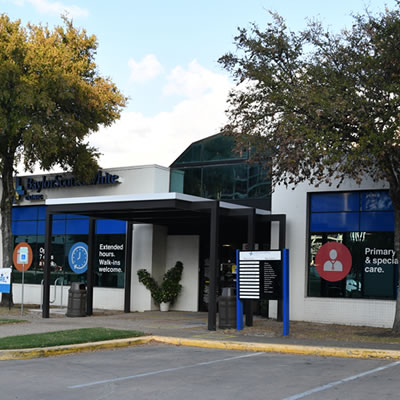
Baylor Scott & White Clinic - Austin North Burnet
2608 Brockton Dr , Austin, TX, 78758
- Monday: 8:00 am - 5:00 pm
- Tuesday: 8:00 am - 5:00 pm
- Wednesday: 8:00 am - 5:00 pm
- Thursday: 8:00 am - 5:00 pm
- Friday: 8:00 am - 5:00 pm
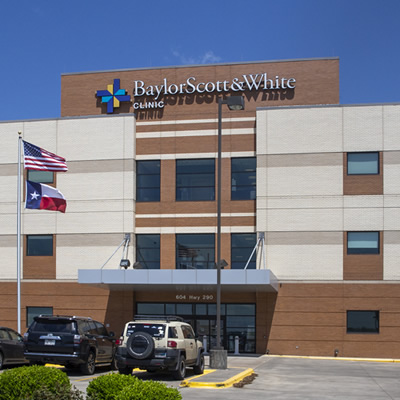
Baylor Scott & White Clinic - Brenham Hwy 290
604 US 290 , Brenham, TX, 77833
- Monday: 7:00 am - 5:00 pm
- Tuesday: 7:00 am - 5:00 pm
- Wednesday: 7:00 am - 5:00 pm
- Thursday: 7:00 am - 7:00 pm
- Friday: 7:00 am - 5:00 pm
- Saturday: 8:00 am - 12:00 pm
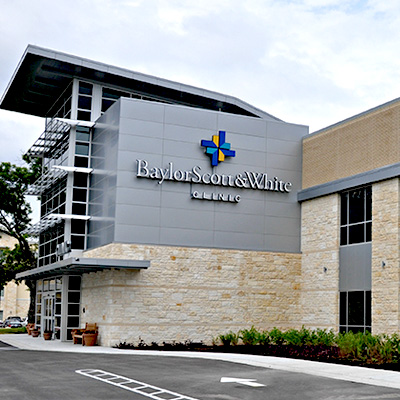
Baylor Scott & White Clinic - Cedar Park
910 E Whitestone Blvd , Cedar Park, TX, 78613
- Monday: 8:00 am - 5:00 pm
- Tuesday: 8:00 am - 5:00 pm
- Wednesday: 8:00 am - 5:00 pm
- Thursday: 8:00 am - 5:00 pm
- Friday: 8:00 am - 5:00 pm
- Monday: 7:00 am - 5:00 pm
- Tuesday: 7:00 am - 5:00 pm
- Wednesday: 7:00 am - 5:00 pm
- Thursday: 7:00 am - 5:00 pm
- Friday: 7:00 am - 5:00 pm
- Saturday: 9:00 am - 2:00 pm
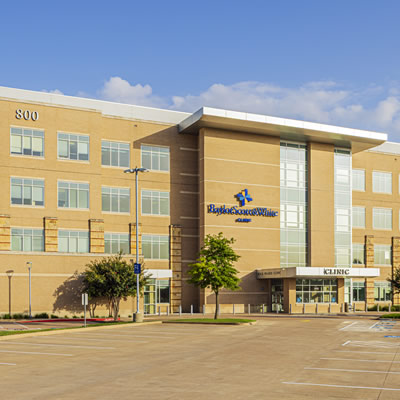
Baylor Scott & White Clinic - College Station Rock Prairie
800 Scott and White Dr , College Station, TX, 77845
- Monday: 7:30 am - 5:00 pm
- Tuesday: 7:30 am - 5:00 pm
- Wednesday: 7:30 am - 5:00 pm
- Thursday: 7:30 am - 5:00 pm
- Friday: 7:30 am - 5:00 pm
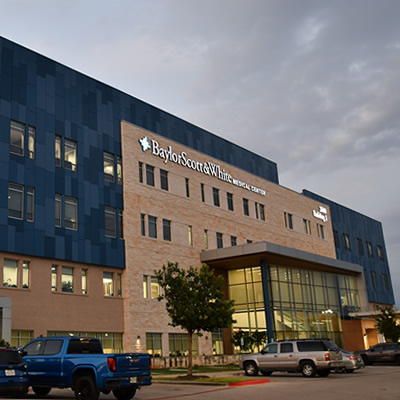
Baylor Scott & White Clinic - Pflugerville Medical Center (Building 1)
2600 E Pflugerville Pkwy Bldg 1, Ste 200, Pflugerville, TX, 78660
- Monday: 8:00 am - 5:00 pm
- Tuesday: 8:00 am - 5:00 pm
- Wednesday: 8:00 am - 5:00 pm
- Thursday: 8:00 am - 5:00 pm
- Friday: 8:00 am - 5:00 pm
- Monday: 7:30 am - 4:00 pm
- Tuesday: 7:30 am - 4:00 pm
- Wednesday: 7:30 am - 4:00 pm
- Thursday: 7:30 am - 4:00 pm
- Friday: 7:30 am - 4:00 pm
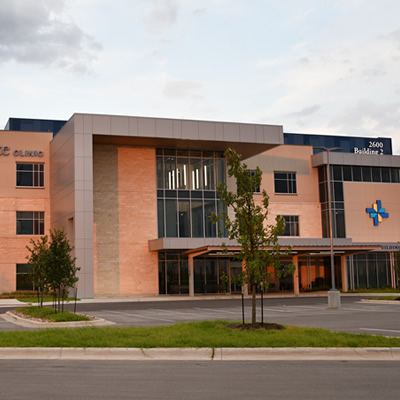
Baylor Scott & White Clinic - Pflugerville Medical Center Building 2
2600 E Pflugerville Pkwy Building 2, Pflugerville, TX, 78660
- Monday: 8:00 am - 5:00 pm
- Tuesday: 8:00 am - 5:00 pm
- Wednesday: 8:00 am - 5:00 pm
- Thursday: 8:00 am - 5:00 pm
- Friday: 8:00 am - 5:00 pm
- Monday: 8:00 am - 4:00 pm
- Tuesday: 8:00 am - 4:00 pm
- Wednesday: 8:00 am - 4:00 pm
- Thursday: 8:00 am - 4:00 pm
- Friday: 8:00 am - 4:00 pm
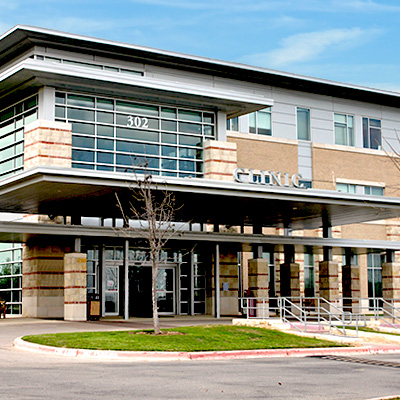
Baylor Scott & White Clinic - Round Rock 302 University
302 University Blvd , Round Rock, TX, 78665
- Monday: 8:00 am - 5:00 pm
- Tuesday: 8:00 am - 5:00 pm
- Wednesday: 8:00 am - 5:00 pm
- Thursday: 8:00 am - 5:00 pm
- Friday: 8:00 am - 5:00 pm
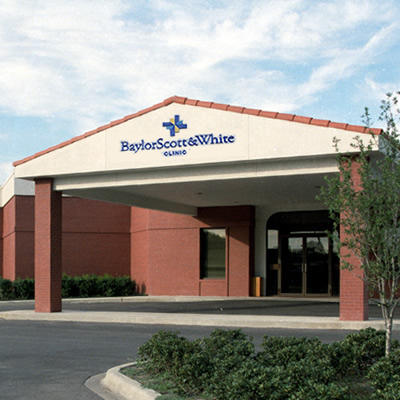
Baylor Scott & White Clinic - Santa Fe
1402 W Ave H , Temple, TX, 76504
- Monday: 8:00 am - 5:00 pm
- Tuesday: 8:00 am - 5:00 pm
- Wednesday: 8:00 am - 5:00 pm
- Thursday: 8:00 am - 5:00 pm
- Friday: 8:00 am - 5:00 pm
- Monday: 7:00 am - 4:30 pm
- Tuesday: 7:00 am - 4:30 pm
- Wednesday: 7:00 am - 4:30 pm
- Thursday: 7:00 am - 4:30 pm
- Friday: 7:00 am - 4:30 pm
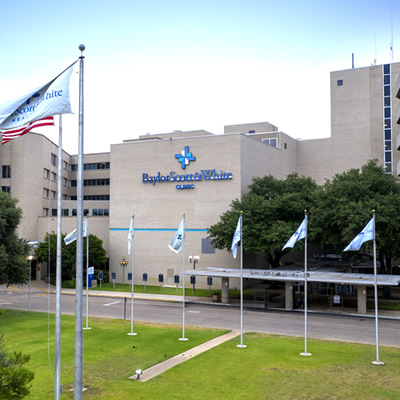
Baylor Scott & White Clinic - Temple
2401 S 31st St , Temple, TX, 76508
- Monday: 8:00 am - 5:00 pm
- Tuesday: 8:00 am - 5:00 pm
- Wednesday: 8:00 am - 5:00 pm
- Thursday: 8:00 am - 5:00 pm
- Friday: 8:00 am - 5:00 pm
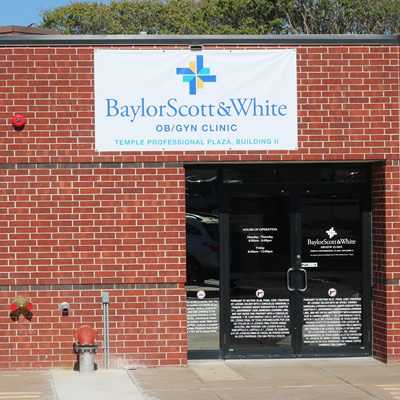
Baylor Scott & White Clinic - Temple Professional Plaza II
1713 SW H K Dodgen Loop Bldg II, Ste 100, Temple, TX, 76502
- Monday: 8:00 am - 6:00 pm
- Tuesday: 8:00 am - 6:00 pm
- Wednesday: 8:00 am - 6:00 pm
- Thursday: 8:00 am - 6:00 pm
- Friday: 8:00 am - 12:00 pm
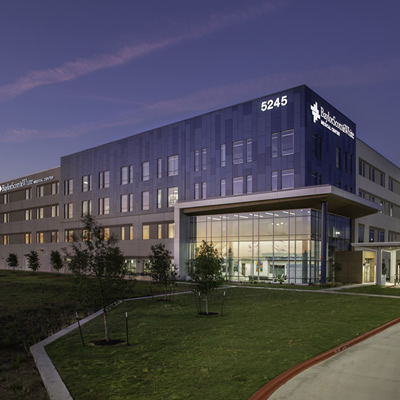
Baylor Scott & White Medical Center - Austin
5245 W US Hwy 290 Service Rd , Austin, TX, 78735

Baylor Scott & White Medical Center - Brenham
700 Medical Pkwy , Brenham, TX, 77833
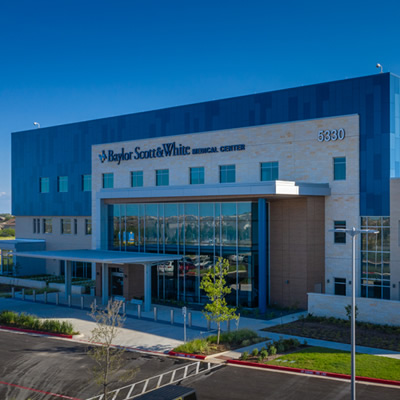
Baylor Scott & White Medical Center - Buda
5330 Overpass Rd , Buda, TX, 78610
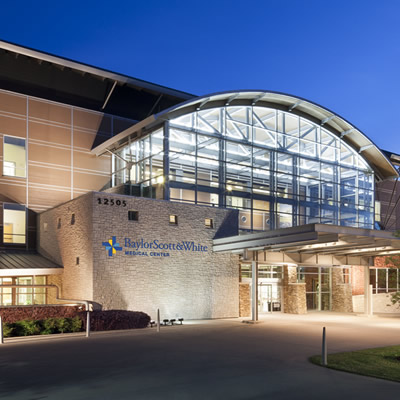
Baylor Scott & White Medical Center - Centennial
12505 Lebanon Rd , Frisco, TX, 75035
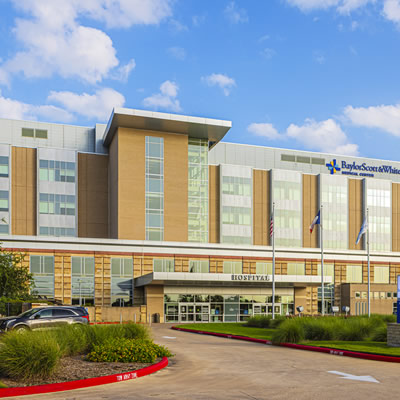
Baylor Scott & White Medical Center - College Station
700 Scott and White Dr , College Station, TX, 77845
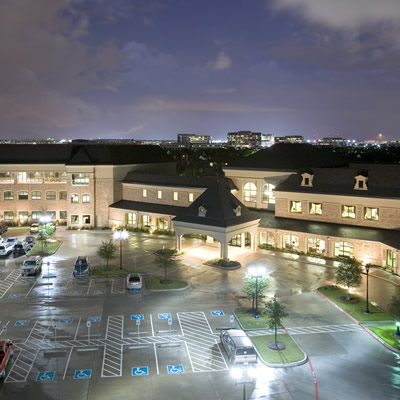
Baylor Scott & White Medical Center - Frisco
5601 Warren Pkwy , Frisco, TX, 75034
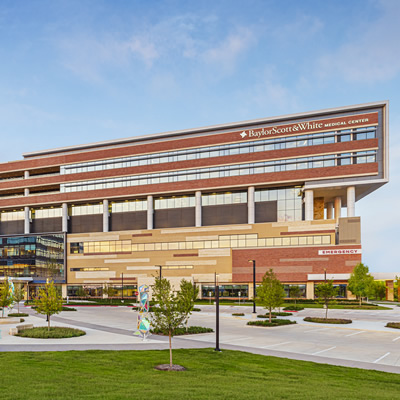
Baylor Scott & White Medical Center - Frisco at PGA Parkway
7600 Better Way , Frisco, TX, 75033

Baylor Scott & White Medical Center - Grapevine
1650 W College St , Grapevine, TX, 76051
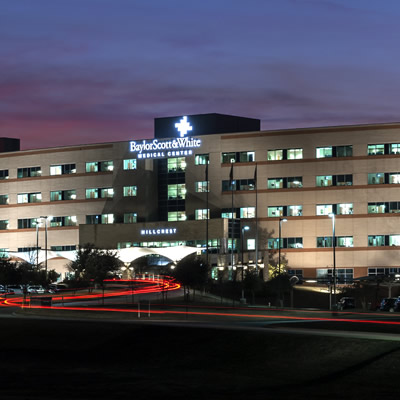
Baylor Scott & White Medical Center - Hillcrest
100 Hillcrest Medical Blvd , Waco, TX, 76712

Baylor Scott & White Medical Center - Irving
1901 N MacArthur Blvd , Irving, TX, 75061
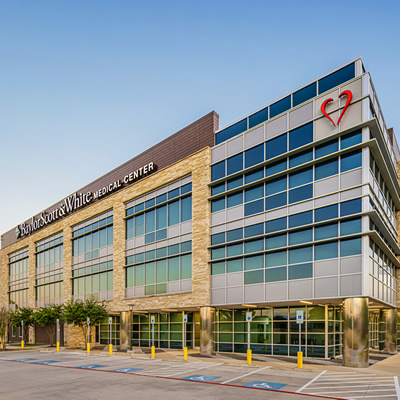
Baylor Scott & White Medical Center - Lake Pointe
6800 Scenic Dr , Rowlett, TX, 75088
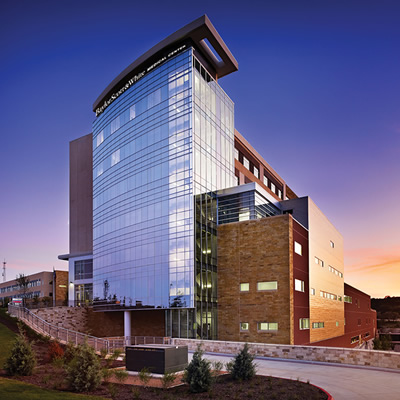
Baylor Scott & White Medical Center - Lakeway
100 Medical Pkwy , Lakeway, TX, 78738
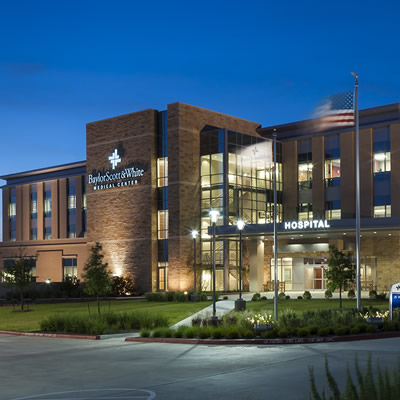
Baylor Scott & White Medical Center - Marble Falls
810 W State Hwy 71 , Marble Falls, TX, 78654

Baylor Scott & White Medical Center - McKinney
5252 W University Dr Highway 380 at Lake Forest Drive, McKinney, TX, 75071
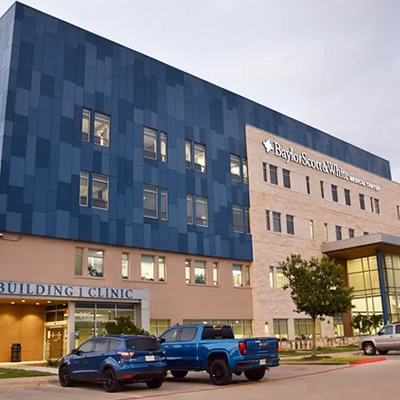
Baylor Scott & White Medical Center - Pflugerville (Building 1)
2600 E Pflugerville Pkwy Bldg 1, Ste 100, Pflugerville, TX, 78660
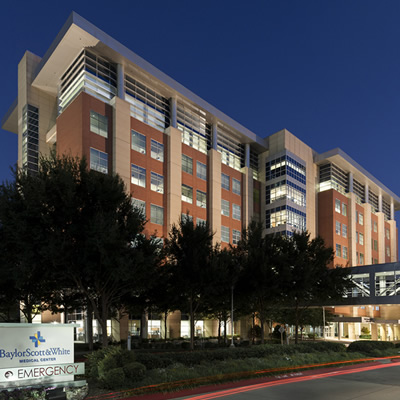
Baylor Scott & White Medical Center - Plano
4700 Alliance Blvd , Plano, TX, 75093
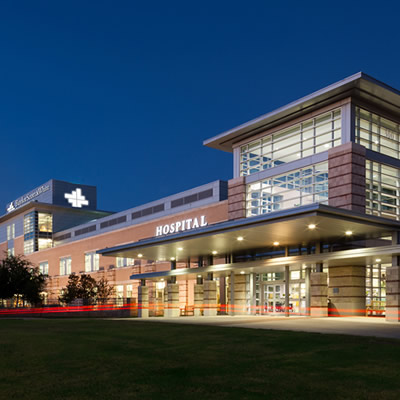
Baylor Scott & White Medical Center - Round Rock
300 University Blvd , Round Rock, TX, 78665
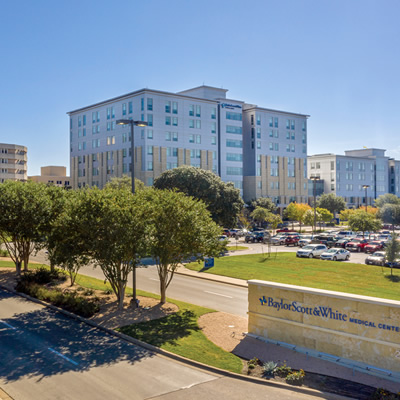
Baylor Scott & White Medical Center - Temple
2401 S 31st St , Temple, TX, 76508

Baylor Scott & White Medical Center - Waxahachie
2400 N Interstate 35E , Waxahachie, TX, 75165
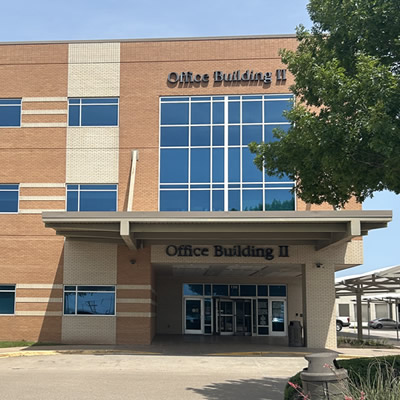
Baylor Scott & White OB/GYN Clinic - Waco
120 Hillcrest Medical Blvd Office Building 2, Ste 201-2, Waco, TX, 76712
- Monday: 8:00 am - 5:00 pm
- Tuesday: 8:00 am - 5:00 pm
- Wednesday: 8:00 am - 5:00 pm
- Thursday: 8:00 am - 5:00 pm
- Friday: 8:00 am - 5:00 pm
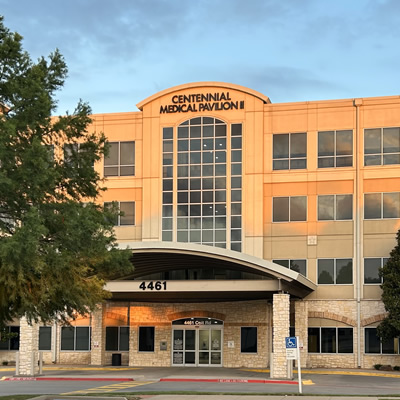
Baylor Scott & White Obstetrics & Gynecology - Frisco
4461 Coit Rd Ste 205, Frisco, TX, 75035
- Monday: 8:00 am - 4:45 pm
- Tuesday: 8:00 am - 4:45 pm
- Wednesday: 8:00 am - 4:45 pm
- Thursday: 8:00 am - 4:45 pm
- Friday: 8:00 am - 4:30 pm
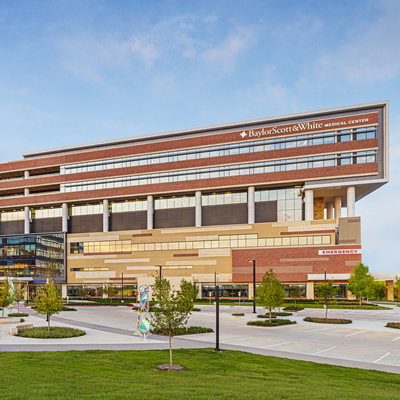
Baylor Scott & White Obstetrics & Gynecology - Frisco at PGA Parkway
16050 Everwell Ln Professional Pavilion I, Ste 200, Frisco, TX, 75033
- Monday: 8:00 am - 4:45 pm
- Tuesday: 8:00 am - 4:45 pm
- Wednesday: 8:00 am - 4:45 pm
- Thursday: 8:00 am - 4:45 pm
- Friday: 8:00 am - 4:30 pm
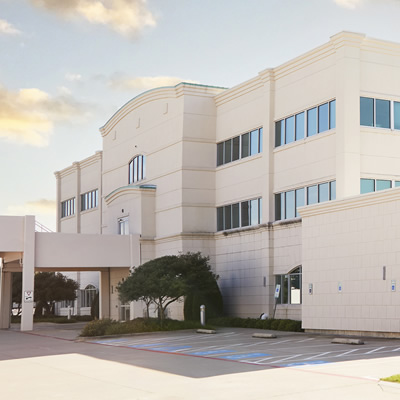
Baylor Scott & White Obstetrics & Gynecology - Grapevine
1631 Lancaster Dr Ste 370, Grapevine, TX, 76051
- Monday: 8:00 am - 5:00 pm
- Tuesday: 8:00 am - 5:00 pm
- Wednesday: 8:00 am - 5:00 pm
- Thursday: 8:00 am - 5:00 pm
- Friday: 8:00 am - 5:00 pm
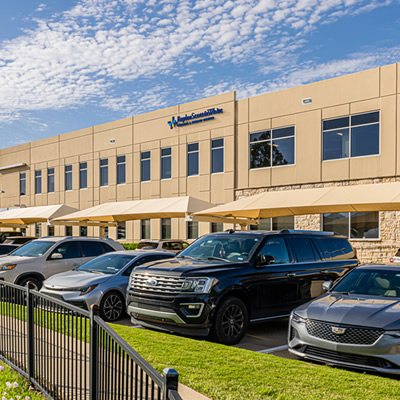
Baylor Scott & White Obstetrics & Gynecology - Rockwall
1005 W Ralph Hall Pkwy Ste 115, Rockwall, TX, 75032
- Monday: 8:00 am - 5:00 pm
- Tuesday: 8:00 am - 5:00 pm
- Wednesday: 8:00 am - 5:00 pm
- Thursday: 8:00 am - 5:00 pm
- Friday: 8:00 am - 5:00 pm

Baylor Scott & White Obstetrics & Gynecology - Rowlett
9500 Lakeview Pkwy Ste 100, Rowlett, TX, 75088
- Monday: 8:00 am - 5:00 pm
- Tuesday: 8:00 am - 5:00 pm
- Wednesday: 8:00 am - 5:00 pm
- Thursday: 8:00 am - 5:00 pm
- Friday: 8:00 am - 5:00 pm

Baylor Scott & White Obstetrics & Gynecology - Waxahachie
2460 N Interstate 35E Ste 225, Waxahachie, TX, 75165
- Monday: 9:00 am - 4:30 pm
- Tuesday: 9:00 am - 4:30 pm
- Wednesday: 9:00 am - 4:30 pm
- Thursday: 9:00 am - 4:30 pm
- Friday: 9:00 am - 4:30 pm

Baylor Scott & White Park Lane OB/GYN Associates
9101 N Central Expy Ste 250, Dallas, TX, 75231
- Monday: 8:00 am - 4:30 pm
- Tuesday: 8:00 am - 4:30 pm
- Wednesday: 8:00 am - 4:30 pm
- Thursday: 8:00 am - 4:30 pm
- Friday: 8:00 am - 4:30 pm

Baylor Scott & White Specialty Clinic - Harker Heights
907 Mountain Lion Cir , Harker Heights, TX, 76548
- Monday: 8:00 am - 5:00 pm
- Tuesday: 8:00 am - 5:00 pm
- Wednesday: 8:00 am - 5:00 pm
- Thursday: 8:00 am - 5:00 pm
- Friday: 8:00 am - 5:00 pm
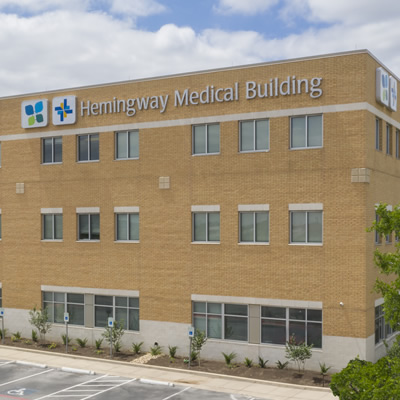
Baylor Scott & White Specialty Clinic - Killeen Hemingway
2405 S Clear Creek Rd , Killeen, TX, 76549
- Monday: 8:00 am - 5:00 pm
- Tuesday: 8:00 am - 5:00 pm
- Wednesday: 8:00 am - 5:00 pm
- Thursday: 8:00 am - 5:00 pm
- Friday: 8:00 am - 5:00 pm
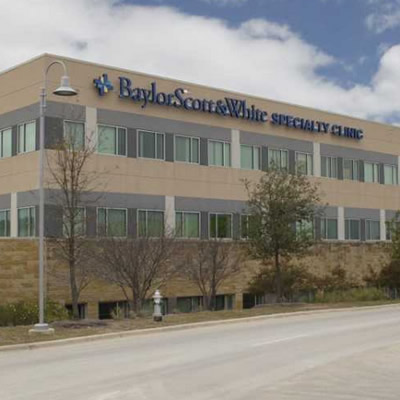
Baylor Scott & White Specialty Clinic - Lakeway
200 Medical Pkwy , Lakeway, TX, 78738
- Monday: 8:00 am - 5:00 pm
- Tuesday: 8:00 am - 5:00 pm
- Wednesday: 8:00 am - 5:00 pm
- Thursday: 8:00 am - 5:00 pm
- Friday: 8:00 am - 5:00 pm
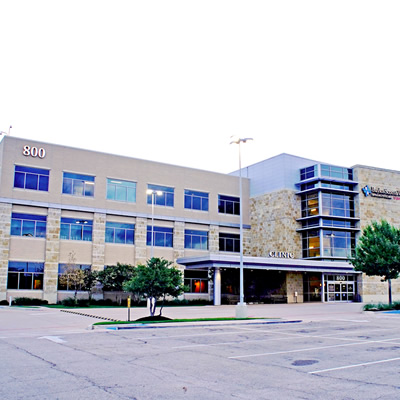
Baylor Scott & White Specialty Clinic - Marble Falls
800 W State Hwy 71 , Marble Falls, TX, 78654
- Monday: 8:00 am - 5:30 pm
- Tuesday: 8:00 am - 5:30 pm
- Wednesday: 8:00 am - 5:30 pm
- Thursday: 8:00 am - 5:30 pm
- Friday: 8:00 am - 5:30 pm

Baylor Scott & White Specialty Clinic - Salado
213 Millcreek Dr Ste 190, Salado, TX, 76571
- Monday: 8:00 am - 5:00 pm
- Tuesday: 8:00 am - 5:00 pm
- Wednesday: 8:00 am - 5:00 pm
- Thursday: 8:00 am - 5:00 pm
- Friday: 8:00 am - 5:00 pm

Baylor Scott & White Surgicare - Dallas
4020 Junius St , Dallas, TX, 75246
- Monday: 6:00 am - 5:00 pm
- Tuesday: 6:00 am - 5:00 pm
- Wednesday: 6:00 am - 5:00 pm
- Thursday: 6:00 am - 5:00 pm
- Friday: 6:00 am - 5:00 pm
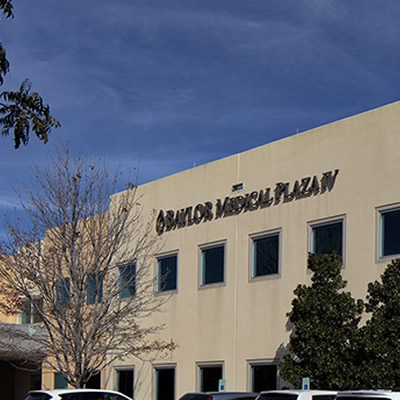
Baylor Scott & White Surgicare - Garland
530 Clara Barton Blvd Ste 100, Garland, TX, 75042
- Monday: 6:00 am - 5:00 pm
- Tuesday: 6:00 am - 5:00 pm
- Wednesday: 6:00 am - 5:00 pm
- Thursday: 6:00 am - 5:00 pm
- Friday: 6:00 am - 5:00 pm
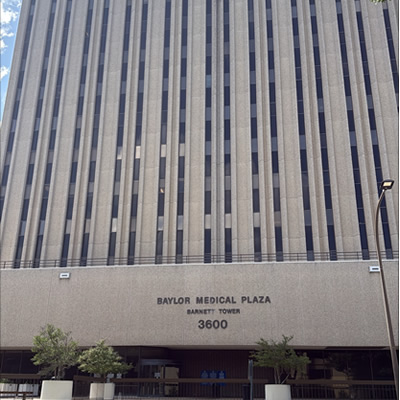
Baylor Scott & White Women's Health Group
3600 Gaston Ave Wadley Tower, Ste 1158, Dallas, TX, 75246
- Monday: 9:00 am - 5:00 pm
- Tuesday: 9:00 am - 5:00 pm
- Wednesday: 9:00 am - 5:00 pm
- Thursday: 9:00 am - 5:00 pm
- Friday: 9:00 am - 4:30 pm

Baylor Scott & White Women’s Health Specialists - Waxahachie
2460 N Interstate 35E Ste 165, Waxahachie, TX, 75165
- Monday: 8:00 am - 5:00 pm
- Tuesday: 8:00 am - 5:00 pm
- Wednesday: 8:00 am - 5:00 pm
- Thursday: 8:00 am - 5:00 pm
- Friday: 8:00 am - 5:00 pm
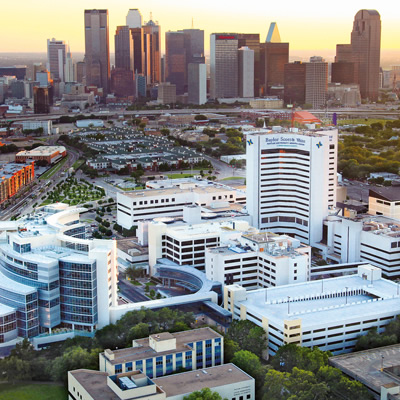
Baylor University Medical Center, part of Baylor Scott & White Health
3500 Gaston Ave , Dallas, TX, 75246
Frequently asked questions
-
Can you feel an ovarian cyst from the outside?
You can’t physically feel a cyst from outside of the body. To determine whether a cyst is present, your women’s health provider will perform a pelvic exam. This exam allows the provider to feel the ovary and an ovarian cyst.
-
Can ovarian cysts cause infertility?
The cysts themselves don’t affect fertility, but some causes of cysts can. Endometriosis and PCOS can make it more difficult to become pregnant.
-
Can ovarian cysts be cancerous?
Yes, however, fewer than 1% of ovarian cysts are cancerous in women who haven’t been through menopause.
-
Do ovarian cysts cause pain in your lower back?
Yes, lower back pain is one symptom of ovarian cysts.
-
Are ovarian cysts genetic?
Some causes of ovarian cysts run in families. For instance, PCOS may be partly related to genetic factors in some cases.
-
Can you get pregnant with ovarian cysts?
Yes, if you have ovarian cysts, you can still get pregnant. However, the underlying causes of some cysts, such as PCOS, may limit fertility.
-
Can ovarian cysts cause abnormal pap smears?
No. A pap smear checks for HPV, or human papillomavirus. This virus does not cause ovarian cysts.

